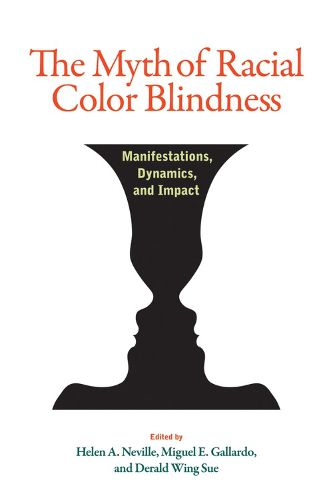Readings Newsletter
Become a Readings Member to make your shopping experience even easier.
Sign in or sign up for free!
You’re not far away from qualifying for FREE standard shipping within Australia
You’ve qualified for FREE standard shipping within Australia
The cart is loading…






Is the United States today a
post-racial
society? Some might point to the election and re-election of a Black president as conclusive evidence of the progress made in race relations, but others are not so sanguine.
In this volume, top scholars in psychology, education, sociology, and related fields dissect the concept of color-blind racial ideology (CBRI), the widely-held belief that skin color does not affect interpersonal interactions, and that interpersonal and institutional racism therefore no longer exists in American society.
Contributors survey the theoretical and empirical literature on racial color-blindness; discuss novel ways of assessing and measuring color-blind racial beliefs; examine related characteristics such as lack of empathy (among Whites) and internalized racism (among people of color); and assess the impact of CBRI in education, the workplace, and health care - as well as the racial disparities that such beliefs help foster. Finally, they recommend ways to counter color-blind racial beliefs by advocating for and implementing race-conscious policies and practices that aim to create equal access and opportunities for all.
$9.00 standard shipping within Australia
FREE standard shipping within Australia for orders over $100.00
Express & International shipping calculated at checkout
Stock availability can be subject to change without notice. We recommend calling the shop or contacting our online team to check availability of low stock items. Please see our Shopping Online page for more details.
Is the United States today a
post-racial
society? Some might point to the election and re-election of a Black president as conclusive evidence of the progress made in race relations, but others are not so sanguine.
In this volume, top scholars in psychology, education, sociology, and related fields dissect the concept of color-blind racial ideology (CBRI), the widely-held belief that skin color does not affect interpersonal interactions, and that interpersonal and institutional racism therefore no longer exists in American society.
Contributors survey the theoretical and empirical literature on racial color-blindness; discuss novel ways of assessing and measuring color-blind racial beliefs; examine related characteristics such as lack of empathy (among Whites) and internalized racism (among people of color); and assess the impact of CBRI in education, the workplace, and health care - as well as the racial disparities that such beliefs help foster. Finally, they recommend ways to counter color-blind racial beliefs by advocating for and implementing race-conscious policies and practices that aim to create equal access and opportunities for all.